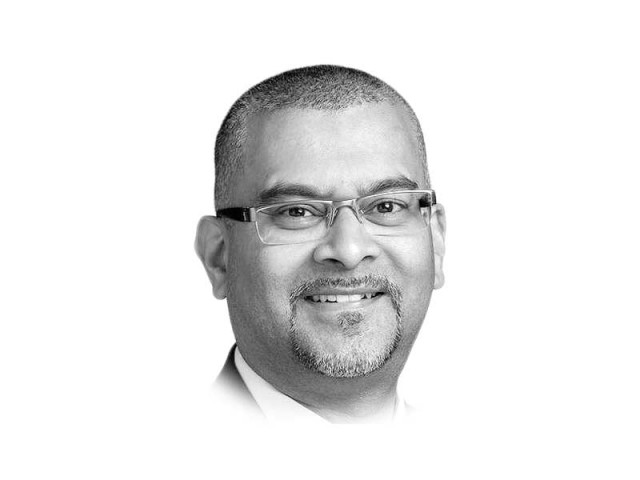Live, let live and leave it to God to judge
Muslim leaders must be more proactive in harnessing a peaceful vision of the Holy Quran

The writer is counsel to KSM Law, an associate professor at Valparaiso University Law School in Indiana and an adjunct professor at Osgoode Hall Law School of York University. He tweets @faisalkutty
How much can change in a week and yet stay the same. It started Friday, June 3 with sadness upon learning of the death of Muhammad Ali. Thanks to the foresight of the Champ, who planned out his funeral as a wonderful teaching moment on Islam, Muslims, co-existence and justice, the week was one of the proudest moments around the world. Islam and its markers such as “Allah-o-Akbar” and “Assalamu Alaykum” had been taken back from fanatics.
Then just over a week later, tragedy strikes — again. Many Muslims are mourning the dead, injured and countless others traumatised one way or the other by this horrific attack. Muslims are also lamenting how the newly galvanised positive image came crashing down with the bullets sprayed by a crazed fanatic. Guilt by association and nuance are not the best of buddies.
To apologise or to condemn, became the question. No community or group of people are asked to apologise for the actions of the fringe from among them, whether self-identified or through association. There is no broad expectation if you’re white or Christian to say sorry for the terrible acts of a few who happen to share your race, ethnicity or faith. As Muslim basketball legend Kareem Abdul Jabbar brilliantly summed up, “When the Ku Klux Klan burns a cross in a black family’s yard, Christians aren’t required to explain how these aren’t really Christian acts.” Atheists, Buddhists, Hindus, Jews, Sikhs and even animal rights and environmental activists are not expected to apologise for and distance themselves from terrorists among their ranks, and rightfully so.

The double standard is not lost on many who ask why only Muslims should be held collectively responsible for the actions of its fringe.
Yet on the question of condemnation, it’s a bit more complicated. In the wake of the San Bernardino attack, President Obama while noting that “Muslim Americans are our friends and our neighbours” also stressed that Muslim leaders must “unequivocally reject the hateful ideology that groups like ISIL and al Qaeda promote”.
Hundreds, if not thousands, of Muslim organisations and individuals have done just that. Yet the community needs to say and do much more. Not because we have conclusive proof that Omar Mateen was driven by his religious belief (in fact it appears he was not very religious like many of his ilk), but because there is a perception that he was. Given the current Islamophobic climate and the intensification of rhetoric from extremists, it is wise for Muslims to make their position clear, even though it may not be fair.
Moreover, Muslim leaders must be more proactive in harnessing an ethical/peaceful vision of the Holy Quran to confront some of the existing narratives fuelling cognitive radicalisation. Imams must deconstruct and contextualise the violent rhetoric found in juristic works, and adopted uncritically by far too many.
Having grown up in the community, helped found and led Muslim groups since university days, and worked publicly as a Muslim activist for more than three decades, I must confess that there is a culture of righteous violence and otherisation that is rampant. Indeed, I was once of this mindset. The victimhood mentality combined with the moral certitude that comes with theological backing for violence in furthering ‘Islamic’ sanctities is a fuse ready to be lit at any moment.
As noted on Facebook by internationally recognised Islamic scholar Professor Ebrahim Moosa of the University of Notre Dame: “It is a type of religious mindset that wants quick redemption by committing acts of horror that are proclaimed by ISIS as jihad and killing the enemy. This mindset, while peculiar to Muslim terror groups, also has a certain validation within mainstream Muslim theology where zeal (ghayra) to take moral offense at violation of Muslim sanctities is glorified. And often the violence perpetuated to avenge the moral offense is viewed as valid.”
A classically trained scholar from Darul Ulum Nadwatul Ulema in Lucknow, and author of What is a Madrasa, Professor Moosa, then offers the example of the thousands who attended the funeral earlier this year of Mumtaz Qadri (executed for murdering Punjab governor Salmaan Taseer). Indeed, far too many ulema publicly declared Qadri a martyr and deemed the murder religiously defensible.
The regressive worldview preached in the name of Islam around the globe today has had profound and lasting effect on the religion as it is practised today. This must be undone. This narrow-minded influence is evident from the prevalence of aggressive takfir (excommunication), tolerated anti-Semitism, promoted homophobia, fear of unbelievers, and institutionalised gender inequality that is far more common than most of us are ready to admit.
Islamic scholars and leaders can no longer afford to remain silent and so I am glad to see CAIR take the lead. As CAIR’s Awad stated: “The liberation of the American Muslim community is profoundly linked to the liberation of other minorities — blacks, Latinos, gays, Jews, and every other community. We cannot fight injustice against some groups and not against others … we cannot dismantle one without the other.”
It is time that we advocated a live, let live and leave it to God to judge approach.
Published in The Express Tribune, July 2nd, 2016.
Like Opinion & Editorial on Facebook, follow @ETOpEd on Twitter to receive all updates on all our daily pieces.















COMMENTS
Comments are moderated and generally will be posted if they are on-topic and not abusive.
For more information, please see our Comments FAQ